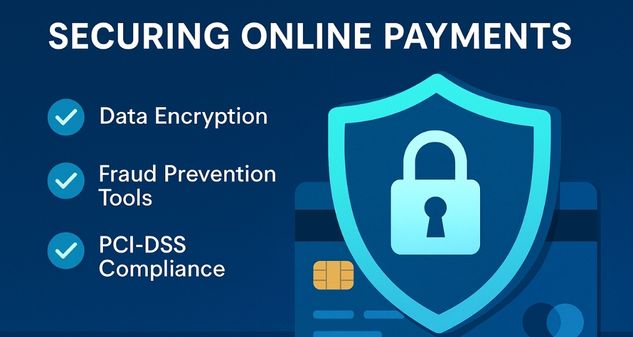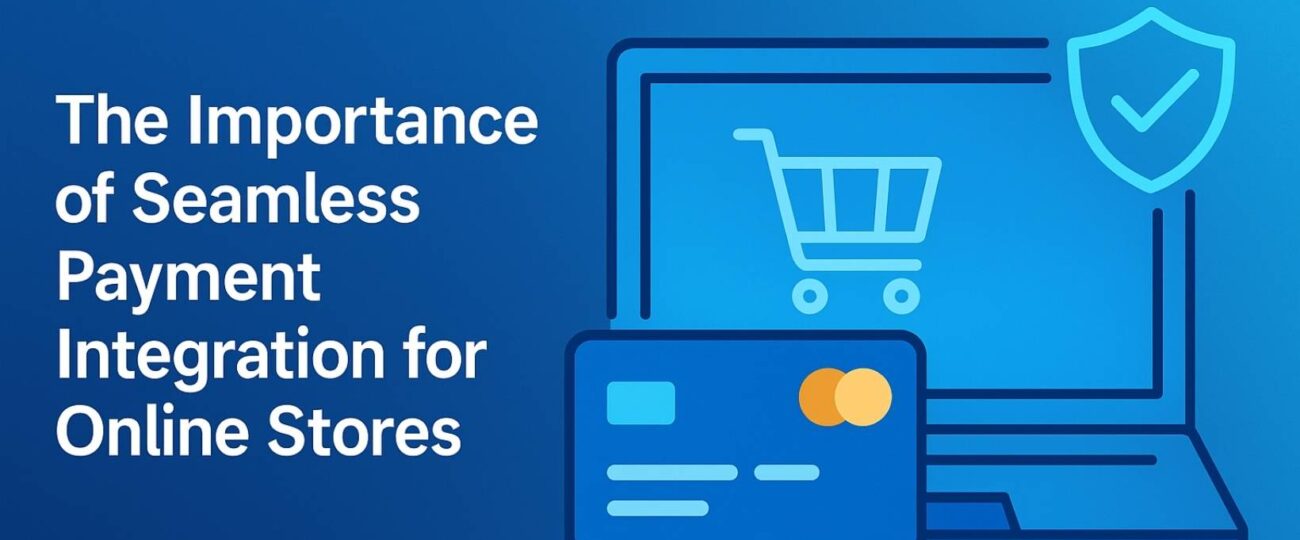In today’s fast-paced world, where convenience is key, online shopping has become a dominant part of our daily lives. For online store owners, providing a smooth, secure, and efficient shopping experience is crucial for customer satisfaction and retention. One of the most important elements of this experience is payment integration.
A seamless payment integration system ensures that customers can make purchases without frustration, thus enhancing the overall user experience. But beyond that, proper payment integration can help streamline business operations, boost conversion rates, and improve security. This article will explore the key reasons why payment integration is so significant for online stores and how it can benefit your business.
1. Enhancing the Customer Experience
The customer journey in an online store begins as soon as they land on your website and ends when they complete their purchase. Each step in between needs to be as seamless as possible, and payment is one of the most critical stages. If the payment process is cumbersome, confusing, or insecure, it can lead to abandoned carts and lost sales.
Payment integration simplifies this process by enabling multiple payment methods, such as credit cards, debit cards, PayPal, digital wallets, and even newer options like cryptocurrency. This flexibility caters to customers’ preferences and ensures they can pay using their preferred method.
- Faster Checkout: Integrated payment solutions allow customers to pay with just a few clicks, reducing friction in the checkout process.
- Convenience: Offering various payment options, including mobile wallets and Buy Now Pay Later (BNPL) options, ensures that customers have a convenient way to complete their transactions.
- Trust: Providing well-known, secure payment options builds trust with customers, as they feel confident their payment information is protected.
2. Streamlining Business Operations
For an online store, payment integration is not just about customer satisfaction; it also plays a vital role in simplifying business operations. By integrating payment systems directly into your website or e-commerce platform, you can automate many manual tasks associated with payment processing, such as:
- Payment Processing: With integrated payment systems, payments are processed automatically without the need for manual intervention, reducing human error and saving time.
- Inventory Management: When integrated with your inventory system, the payment gateway can automatically update stock levels after each sale, ensuring accurate stock management.
- Reporting and Analytics: Integrated payment systems typically come with built-in reporting and analytics features, allowing store owners to track sales, revenue, and other important metrics in real-time. This makes it easier to manage finances, monitor business performance, and make informed decisions.
3. Improving Conversion Rates
A seamless payment experience is directly linked to higher conversion rates. Studies have shown that complex or frustrating payment processes are among the leading causes of cart abandonment. If customers experience difficulties during checkout, such as being forced to create an account before paying, entering their payment details multiple times, or encountering security concerns, they are more likely to abandon their cart.
With effective payment integration, you can:
- Reduce Cart Abandonment: A smooth and quick checkout process leads to fewer drop-offs, increasing your chances of converting visitors into paying customers.
- Offer Guest Checkout: Allowing customers to make purchases without creating an account can streamline the payment process and reduce friction.
- Enable Multiple Payment Methods: Offering various payment methods—such as credit/debit cards, PayPal, and digital wallets—cater to different customer preferences, improving the likelihood of conversion.
4. Ensuring Security and Compliance
Security is a critical concern when it comes to online payments. Customers need to trust that their financial information is safe when making purchases. Payment integration plays a key role in ensuring that sensitive data is transmitted securely and in compliance with global standards, such as PCI-DSS (Payment Card Industry Data Security Standard).
Key security features of payment integration include:
- Data Encryption: Payment systems use encryption protocols (such as SSL/TLS) to secure the transmission of sensitive data, protecting it from hackers.
- Fraud Prevention Tools: Integrated payment solutions often include built-in fraud detection tools, such as Address Verification Systems (AVS), 3D Secure, and real-time monitoring, helping to prevent fraudulent transactions.
- PCI-DSS Compliance: Ensuring that your payment gateway is PCI-compliant guarantees that your store meets industry standards for securing credit card information.

Providing a secure payment environment is essential for building customer trust, reducing chargebacks, and ensuring compliance with legal requirements.
5. Supporting Global Expansion
For businesses looking to expand internationally, payment integration is crucial. In global markets, customers expect to pay using their local currency and preferred payment methods. A payment system that supports multiple currencies and international payment options allows you to reach a wider audience and tap into new revenue streams.
- Multi-Currency Support: Integrated payment gateways enable businesses to accept payments in various currencies, making it easier to cater to international customers.
- Localized Payment Methods: Different countries have different preferred payment methods. A good payment gateway will offer options that cater to local preferences, such as iDEAL in the Netherlands or Alipay in China.
- Cross-Border Transactions: International payment solutions ensure that you can process cross-border transactions efficiently, reducing transaction delays and errors.
By offering global payment options, you can expand your business beyond borders and access new markets with ease.
6. Optimizing Mobile Payments
The increasing use of smartphones for shopping means that mobile optimization is essential for e-commerce stores. Payment integration must extend to mobile devices, offering customers a quick and easy way to pay from their phones.
- Mobile Wallet Integration: Integrating mobile wallet solutions like Apple Pay, Google Pay, or Samsung Pay ensures that mobile users can pay with a single tap.
- Responsive Design: A payment system that is optimized for mobile devices ensures a smooth checkout experience for customers shopping from smartphones or tablets.
- Speed and Efficiency: Mobile payments should be fast, as mobile users often expect quick transactions, especially when shopping on-the-go.
Ensuring that your payment integration is mobile-friendly will help increase conversions and enhance the customer experience for mobile shoppers.
7. Flexibility for Different Business Models
Whether you’re running a traditional e-commerce store, a subscription service, or a marketplace, payment integration can be customized to suit your business model. Here’s how payment solutions can cater to different types of businesses:
- E-commerce Stores: Payment integration allows you to accept one-time payments from customers in exchange for products or services.
- Subscription-Based Businesses: Payment gateways can automate recurring billing, making it easy for customers to pay for ongoing services without manually entering payment details each time.
- Marketplaces: Payment integration can facilitate transactions between buyers and sellers on your platform, ensuring that both parties are paid securely.
Whatever your business model, choosing a flexible payment solution ensures that it can scale with your business’s needs.
8. Choosing the Right Payment Integration Solution
When selecting a payment integration solution for your online store, it’s essential to consider factors such as the complexity of integration, transaction fees, and the quality of customer support. Popular payment gateways like EasyPayDirect, PayPal, Stripe, and Square offer a range of features that cater to different business needs.
- EasyPayDirect: Known for its flexibility and robust fraud protection, EasyPayDirect supports a wide range of payment options and integrates easily with e-commerce platforms.
- PayPal: A widely trusted and popular payment solution, PayPal offers easy integration and various payment methods.
- Stripe: Ideal for developers and tech-savvy businesses, Stripe provides customizable payment solutions with an extensive set of features.
- Square: Square is an excellent choice for businesses with both physical and online stores, offering an all-in-one solution for payments, POS, and inventory management.
Conclusion
Payment integration is crucial for any online store looking to provide a seamless, secure, and efficient shopping experience. It helps streamline business operations, boost customer satisfaction, and ensure payment security. By carefully choosing the right payment gateway and integration solution, you can enhance your store’s functionality, increase conversions, and build trust with your customers.
No matter what type of business you run, investing in the right payment integration system is essential for long-term success. With the right solution, you’ll be able to offer a smooth, hassle-free payment process, and ultimately, grow your online business.










